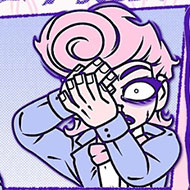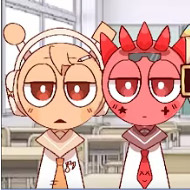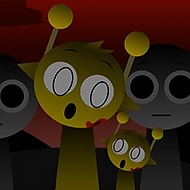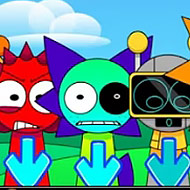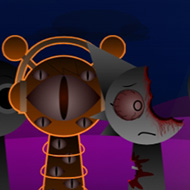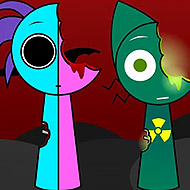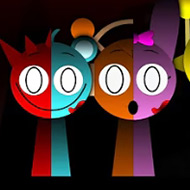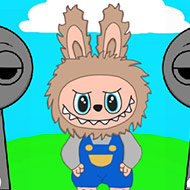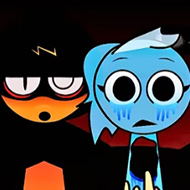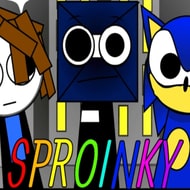Games Like Sprunki
Sprunki Regretful But Classic Style
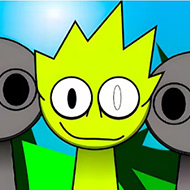
Sprunki Regretful But Classic Style reintroduces the fundamental rhythm structure of the series, but with a distinct emotional tone. Everything is slower, more deliberate, and framed through a lens of introspection. Unlike other titles in the franchise that push for chaos or rapid adaptation, this entry explores restraint—both visually and mechanically. It invites players to focus on timing discipline, subtle cues, and a quieter form of mastery.
Muted Presentation, Maximum Focus
Instead of vibrant colors or animated distractions, Sprunki Regretful But Classic Style uses a reduced visual palette. Backgrounds are minimalistic. Transitions are smoother, and the characters move with measured intention. This visual restraint isn’t just cosmetic—it creates a space where the rhythm becomes the sole focus. There are fewer distractions, but every cue now carries more weight.
- Animations are less exaggerated, offering more naturalistic motion.
- Timing indicators are subtle, tied to posture and breath rather than flash.
- Levels progress based on rhythmic consistency, not score thresholds.
A Game of Clean Execution
The difficulty in this game doesn’t come from visual noise—it comes from expectation. Sprunki Regretful But Classic Style offers you time to react, but demands perfection in return. Sequences often appear simple, but slight delays or premature taps will cost you. It requires muscle control, audio attentiveness, and steady pacing throughout each segment. There are no visual swaps, no rapid distortions—only rhythm, repetition, and execution.
- Hold key presses instead of tapping in quick bursts.
- Listen for bass tones to anchor your rhythm.
- Anticipate tempo changes at emotional scene shifts.
Because the game builds on deliberate tempo and minimalist aesthetic, players must rely on rhythm discipline more than reflexes. Each level encourages patience, and repeated playthroughs reveal tighter rhythm arcs and micro-patterns hidden in the movement flow.
The Role of Regret in Gameplay Design
This version introduces “regret mechanics”—slight rewinds or pauses that occur when an input is missed. These moments aren’t punitive but reflective, asking the player to review timing and try again. In some stages, missing multiple notes results in a ghost delay, where the character replays your failed sequence with stutters, subtly reinforcing the lesson through animation.
- Ghost echoes reframe mistakes as learning tools.
- Level speed adapts to your timing success over time.
- Stage loops reset only after multiple clean cycles.
A Game for Rhythm Minimalists
Sprunki Regretful But Classic Style is built for players who value clarity over intensity. If you enjoy clean rhythm timing, spatial awareness, and progressive mastery without excessive interference, this is the rhythm game to try. It takes the Sprunki formula and strips it down to its rhythmic roots while offering thoughtful pacing and intentional design choices.
Sprunki Regretful But Classic Style challenges players not through chaos, but through calm. If you’re looking for a rhythmic experience that rewards patience, control, and focus, this entry in the series delivers a meditative yet mechanically demanding take on the genre.
No tags found for this post.
There are no reviews yet. Be the first one to write one.
















